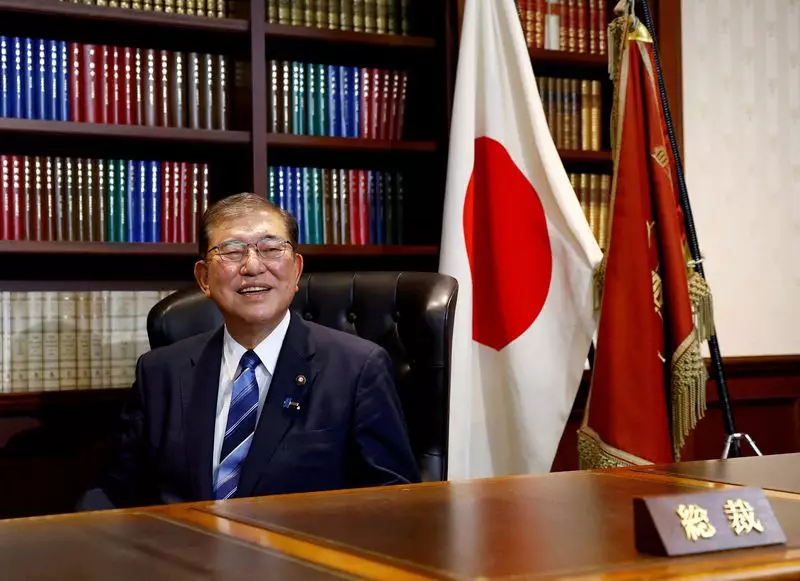Japan is poised for a significant transformation in its economic policymaking as Shigeru Ishiba ascends to the role of Prime Minister. His recent declarations underscore a crucial pivot in the government’s approach to monetary and fiscal policy amid an ever-evolving economic landscape. Ishiba’s past criticism of the Bank of Japan’s (BOJ) expansive monetary easing techniques has created a compelling backdrop for evaluating how his leadership will shape Japan’s economic fate.
Ishiba has emphasized that an accommodative monetary policy is vital for Japan’s economic recovery. This statement raises intriguing questions regarding his stance on the BOJ’s recent interest rate hikes, which marked a departure from years of ultra-loose monetary policy. While he has referenced the BOJ’s independence in determining interest rates, Ishiba’s insistence on maintaining low borrowing costs signals a potential shift toward a more cooperative relationship between the government and the central bank.
His position reflects a recognition of the fragility of the current economic situation. The previous introduction of negative rates and the current rate of 0.25% indicate an atmosphere of cautious optimism. Nevertheless, Ishiba’s rhetoric on monetary policy suggests that he might soften his earlier criticism of the BOJ while still advocating for strategic measures to enhance Japan’s industrial competitiveness amidst global economic pressures.
Ishiba’s commitment to formulating immediate fiscal policies reflects an acute awareness of the socio-economic challenges plaguing many Japanese citizens, particularly low-income households. As inflation hits household budgets, crafting a robust support package will be essential in demonstrating the government’s responsiveness to citizens’ needs. His emphasis on addressing rising living costs aligns with broadening public expectations that the government must act as a stabilizing force during these uncertain times.
Importantly, this proposed package of measures will have to strike a balance between providing immediate relief and ensuring fiscal sustainability. Ishiba will need to navigate the complexities of deficit spending and public debt, ensuring that measures taken are both effective and prudent.
Beyond immediate fiscal and monetary strategies, Ishiba’s government will also need to tackle Japan’s longer-term structural challenges. The recent history of stagnation and deflation requires an innovative mindset that transcends traditional economic models. As he contemplates various policies, Ishiba must, therefore, focus on sustainable growth initiatives that reposition Japan within the global marketplace.
Encouraging technological innovation, enhancing workforce productivity, and fostering entrepreneurship will be crucial components of Ishiba’s agenda. By pursuing these avenues, he can not only address immediate economic concerns but position Japan as a competitive player in an increasingly dynamic international economy.
As Shigeru Ishiba prepares to guide Japan into a new political era, his approach to monetary and fiscal policy will play a critical role in shaping the nation’s economic future. By advocating for a balanced strategy that addresses both immediate pressures and long-term structural challenges, Ishiba has the potential to steer Japan toward a more resilient economic framework. The path ahead is fraught with risks, but with a measured and proactive approach, there exists a significant opportunity for recovery and growth.

